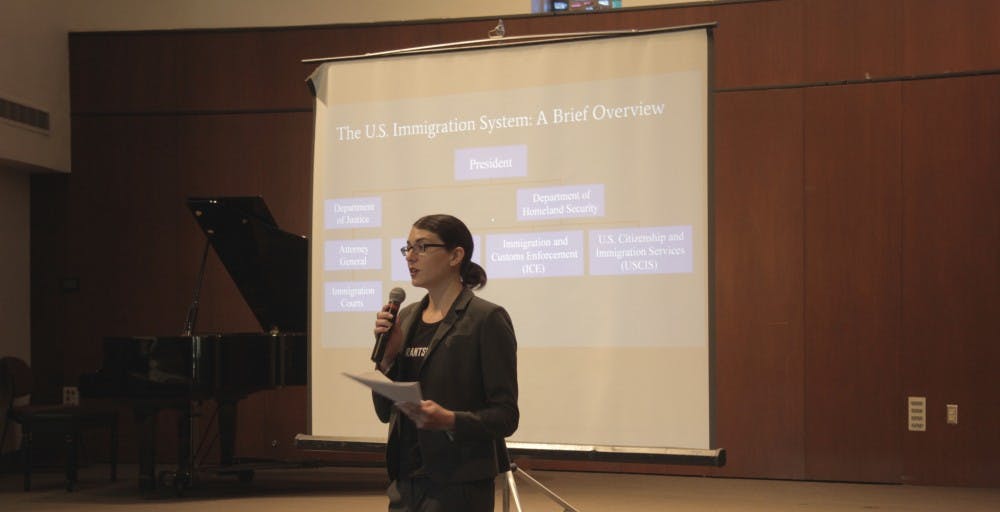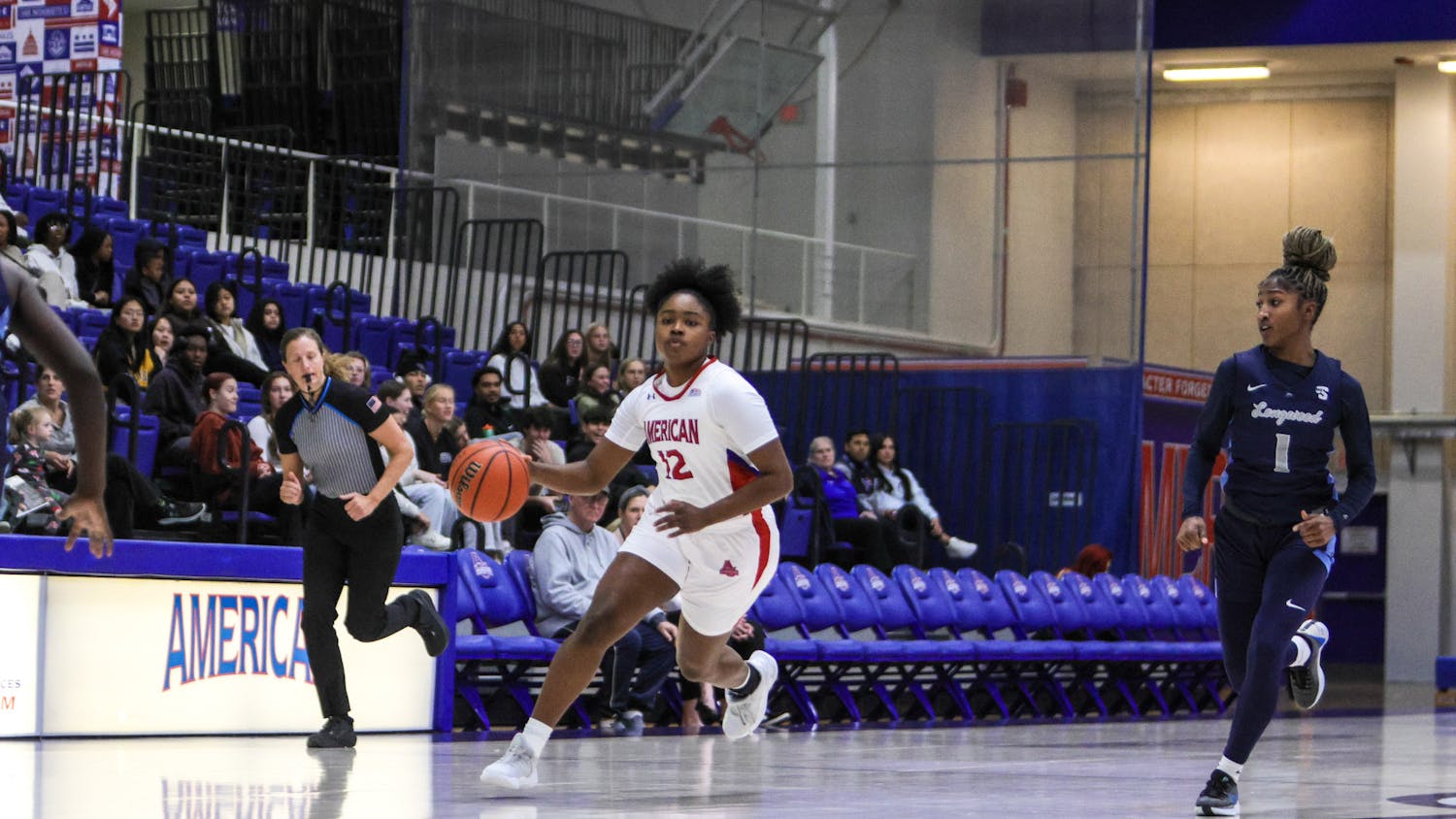The Washington College of Law’s Immigrant Justice Clinic (IJC) and the Office of Campus Life hosted an informational session Friday to “generate community discussion” on the Deferred Action for Childhood Arrivals program (DACA). Audience members also asked questions in an anonymous Q&A session.
Primarily moderated by law students Katie Conway, Liz Pinolini and Courtney Cataudella, the presentation was held following President Trump’s Sept. 5 announcement that he would begin to phase out the DACA program in six months.
“We know there are a lot of concerns about the DACA decision,” Conway told the audience gathered in the Kay Spiritual Life Center. “There’s a lot that we know and a lot that we don’t know, and we just want to be here in this community space to see what we can do in the uncertain weeks ahead.”
For those who couldn’t make the session, here is how the IJC answered five key questions on the future of DACA and what recipients can expect:
What exactly is DACA?
According to the IJC, Deferred Action for Childhood Arrivals (DACA) is a program that currently protects 11 million undocumented immigrants who came to the U.S. as children. The initiative allows immigrants to get an education, work and obtain a social security number and government ID without worrying about being deported or otherwise pursued by the government.
The IJC said that DACA is typically issued to younger immigrants, under the age of 16, who have spent most of their lives in the U.S. going to school or starting a career. It does not grant full citizenship. Starting Sept. 5, no new DACA applications will be accepted.
When will DACA stop being valid?
DACA and work permits are valid until their expiration date. If they expire between now and March 5, 2018, they must be renewed. A two-year renewal of DACA must be in the hands of the Department of Homeland Security (DHS) by Oct. 5, IJC members said.
DACA recipients are also no longer able to travel abroad through Advance Parole, which permits non-citizens to re-enter the country. DHS is currently rejecting all applications for DACA recipients to travel outside the U.S.
Should DACA recipients fear removal from the U.S.?
There is a possibility that former DACA recipients could be deported due to President Trump’s removal priorities, IJC volunteers said. The Trump administration has said it will prioritize individuals involved with criminal offenses or public safety threats. However, according to the IJC, every individual without lawful status is vulnerable, so it is recommended that undocumented immigrants seek legal assistance and avoid any unlawful activity. Unlawful activity doesn’t just include major crimes: it could be something as small as a traffic offense, IJC members said.
What will happen to financial aid for DACA students?
The amount of financial aid given to DACA students will depend on where the money is coming from, according to the IJC. State and institutional funding will depend on the University, so AU students who are DACA recipients are encouraged to reach out to the financial aid office and ask for more information. DACA students have not been and will not be eligible for federal financial aid, per Education Department guidelines. For scholarships, DACA students are encouraged to reach out to immigrant-friendly organizations.
What can students do if they want to defend DACA recipients?
According to the IJC, the best way to get involved is to volunteer at legal clinics and join protests. An audience member asked if calling state senators and representatives would make a difference, and their response was yes.
A bill in Congress, titled the DREAM Act, would provide a road to permanent legal status for undocumented immigrants brought to the U.S. as children. The bill has languished in Congress since being introduced in 2001, but some lawmakers are hopeful it could pass this session.
Valeria Mejía, an AU student and DACA recipient who attended the event, said in an interview with The Eagle that while Trump’s announcement was a devastating blow to her legal status, it is important for all citizens to speak up.
“I think this is something we need to fight for, not just the 800,000 who are affected but the other million,” she said. “I think it’s important for allies to be informed as well and to know how they can help their community.”





